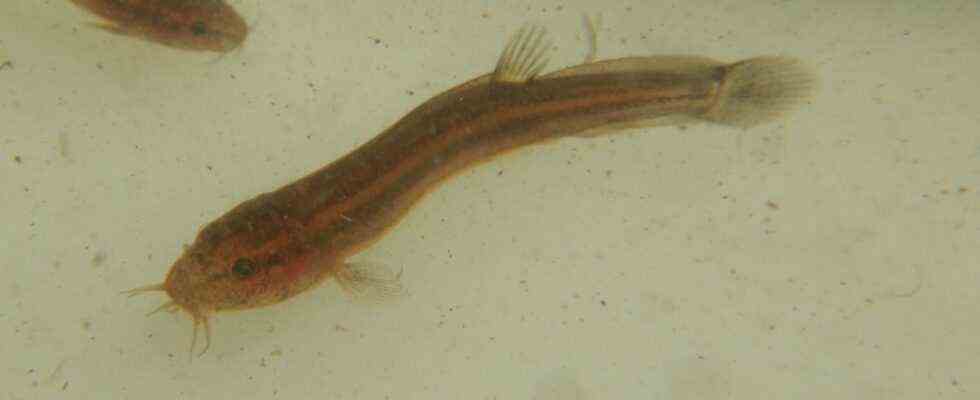The European mud whip or Misgurnus fossilis, as its scientific name is, is a very rare freshwater fish. This is due to its habitat. It occurs on the muddy bottom of stagnant or slowly flowing waters – for example in oxbow lakes of the Danube or other rivers, but also in ditches or pools in wetlands or floodplain landscapes. All of these types of bodies of water can hardly be found in Bavaria any more. They have been built in, drained, cleared or weeded. That is why the mud whip is now threatened with extinction. He is one of the particularly protected species.
Now the State Office for the Environment (LfU) has started a species aid program for the rare fish. In the Danube trench below Deggendorf, 4,500 young mud whippers for just seven weeks were recently released. Matthias Merkel from the Niederbayern fishing consultancy is very happy about it. “The mud whip belongs in our floodplains,” he says. “Whenever we can support the LfU project, we are there.” Merkel very much hopes that the resettlement will succeed. From his point of view, it is already a great success that the LfU was able to breed the Schlammpeitzger in its pond systems in Wielenbach in Upper Bavaria.
Misgurnus fossilis is a comparatively small species. The fish with the eel-like elongated body are only 15 to 30 centimeters long. They have a dark brown back, the sides are a little lighter, with longitudinal stripes running in the middle, the belly side itself is light. Their scales are very small, the skin is slimy. As food fish, they play no role. “Since they are nocturnal, an angler hardly ever gets to see them,” says Merkel. “And if a fisherman really finds one in a trap or a net, he throws it back into the water.” It’s different in Asia. There are several types of mud whiskers there – “and they are considered delicacies there,” said Merkel.
Mud whippers get along very well with oxygen-poor waters. This is due to their pronounced intestinal breathing. They swallow air on the surface of the water and then press it into their strongly perfused intestines, where the oxygen exchange takes place. “That is why they can still live in waters in which no other fish species thrive,” says Merkel. Your intestinal breathing supports the gill breathing so well that the fish can survive longer periods of heat and dryness.
The new species aid program of the LfU should not be limited to the Danube trench near Deggendorf. Several other bodies of water have also been rediscovered in this area, which used to be the home of mud whip. They should now be prepared so that resettlement promises success in them too.

